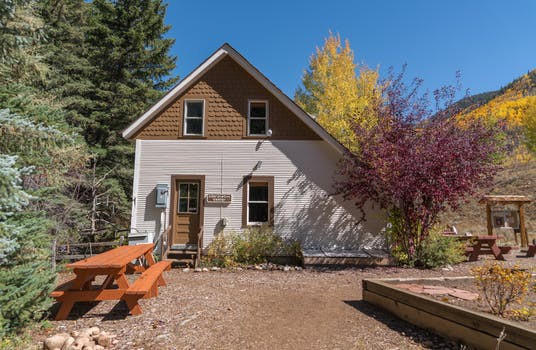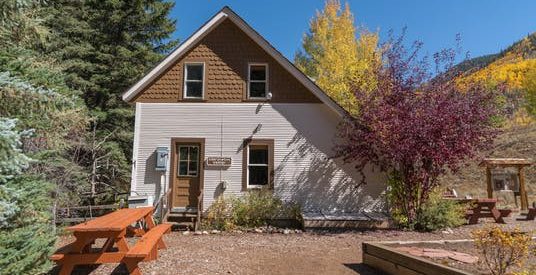 Home Sweet Property Tax
Home Sweet Property Tax
You might think that if you rent you don?t pay property taxes. In fact, you not only pay them, but as a renter you probably pay at a much higher rate than most homeowners. Yes, renters, including those who are too poor to buy a home, get screwed by property taxes.
To explain, I?ll start with two simple economic facts:
- All costs that go into providing products or services must be paid by the consumers of those products or services before the first dollar of profit is made.
- Houses, condos, and apartments owned by landlords are often taxed at higher rates than those occupied by homeowners, and that extra cost, like all costs, must be passed on to the tenants.
To understand the first point, think about buying a cookie. The price you pay must cover the cost of the flour, the sugar, and every other ingredient, right? In fact, every cost has to be covered before there is a penny of profit ? and cookie makers don?t do what they do to lose money.
So consumers pay for every expense the cookie maker has (otherwise he goes bankrupt). More than that, if he makes only a few cents per cookie, and the cost of the flour rises by a few cents per cookie, he has to raise the price so you can keep paying all of his costs (otherwise he goes bankrupt).
The same is true for a landlord providing a home. The renter pays for every expense, including the property taxes. It?s the only way a landlord can break even, let alone get to that first dollar of profit.
Now, if the property taxes on a rented house are higher than the taxes on a similar one occupied by an owner, the tenant pays higher property taxes.
In that case (and it?s a common one), we arrive at this unfortunate truth:
Those who have the resources to buy a home are being privileged with a lower property tax rate than poor families who must rent.
The Homestead Exemption Ripoff
Why would one home be taxed at a higher rate than another similar one in the same area, or even on the same street? One reason is homestead exemption laws.
As explained by Investopedia, a homestead exemption ?protects the value of a home from property taxes and creditors?? Partly it?s about protecting a people from losing their homes to creditors too easily, but in many states the homeowner who claims a homestead exemption also gets to pay lower property taxes.
For example, as explained by the Florida Department of Revenue: ?When someone owns property and makes it his or her permanent residence or the permanent residence of his or her dependent, the property owner may be eligible to receive a homestead exemption that would decrease the property?s taxable value by as much as $50,000.?
It?s a bit more complicated than that makes it sound, but here?s a specific example: When my wife moved to Florida and bought a condo ($89,000), our taxes were about $360 per year, thanks to our homestead exemption. Without it, the taxes would have been about $900 per year.
In that association the condos were all the exact same size and layout, but some were rented, in which case the owner?s tax bill was closer to $900. That had to be part of the rent, of course. So those of us who could afford to buy one of these homes paid just $360, while a young couple struggling with two jobs to pay the rent (they rented for about $950/month at that time), had to pay $540 additional tax every year.
It should be noted that some states, like Michigan, rebate part of this cost to renters in the form of a tax credit for a portion of their rent. On the other hand?
Homeowner Tax Increase Limitations
Some states go even further in their efforts to privilege homeowners. For example, the Tax Foundation says 46 states have some sort of ?tax limitations.?
The most common type is a limitation on how fast property taxes can rise due to assessment changes. So, for example, if the limit is 2% per year, that?s the biggest annual increase a homeowner will pay, even if property values are rising at, say, 6% per year.
These limitations often apply only to owner-occupied homes. As a result, two identical homes, next to each other, can have radically different tax bills, if one has been owner-occupied for a decade and the other is owned by a landlord. The renters pay the higher amount, of course.
I suspect that some renters, who don?t really understand that all costs have to be passed on to them, are happy to see landlords taxed more heavily. But if that?s their goal, they should advocate for higher income taxes and for an end to lower tax rates for investment income.
Taxes added directly to a product or service are always paid by the consumer.
Renters get screwed by property tax laws, which, by the way, means poor people get screwed, since they are more likely to be renters.
Non-Ad Valorem Property Taxes
Some communities have found yet another way to privilege the wealthier residents at the expense of the poor. They do so by using non-ad valorem property taxes.
Most property taxes are ad valorem, meaning they?re based on the value of the property. Thus, roughly speaking, the owners of a house worth $200,000 will pay twice as much as a the owners of a home worth $100,000.
This makes sense. Those with more valuable homes can afford to pay more, but they also get more value from government services. In our example ($200,000 value versus $100,000), the fire department is protecting twice as much value from fire, and presumably the police are protecting more valuable contents from theft.
Just as insurance companies charge more to insure a more valuable home, those who own these homes should pay proportionally higher property taxes.
But what happens when some property taxes are not based on value?
When my wife and I owned a house in North Port, Florida, I noticed a section on our tax bill for ?Non-Ad Valorem Assessments.? The home, now valued at $87,000, currently has four of these charges, totaling $542.26 out of a total tax bill of $1,809.88 (all of this info is available online).
One of these is $138.29, for ?North Port Fire & Rescue.? A few blocks away a home selling for $199,000, is charged $147.65 for this, a bit more ? perhaps for the larger size of the home.
Is it fair to pay just 7% more when at least 100% more value is protected? No insurance company would charge just 7% more to insure a $199,000 home versus one worth $87,000.
Those with lower-value homes are effectively subsidizing those who can afford more expensive homes. And remember that tenants (our previous home is currently rented) pay those property taxes.
On those tax bills, the non-ad valorem taxes for ?Road & Drainage,? and ?Capital Improvements? are identical for both homes. Owners of wealthier homes probably get more value from these services as well (their streets are bigger and better for one thing), yet they pay the same amount as the tenants or owners of the poorest home in town.
Dump the Property Tax?
It is America?s most hated tax, and 93% of voters on Debate.org say we should abolish the property tax. Perhaps no specific form of taxation is necessary, but local governments do have to be funded, so if we get rid of property taxes, what would take their place?
Already local governments rely less on property taxes than in the past. One way this has happened is by instituting more local sales taxes. Here in Tucson, Arizona, where my wife and I live, the city recently convinced voters to add yet another 0.5% to our sales tax, to fund police and fire protection. We?re at 8.7% total for state, city and county sales taxes.
Now, our neighbors eight blocks away in their million-dollar home, pay 16 times as much in property tax as we do in our $60,000 home ? and that?s fair (and it?s their choice, since they could buy a lower-priced home). But how do the new costs get shared if they?re collected via a sales tax?
Sales tax isn?t levied on homes, investments, or even the landscaper?s wages. It only applies to certain consumer goods and services. How much more can a wealthy person spend on clothes and garbage bags and eating out?
My guess is our neighbors spend four times as much as us on taxable items, so this tax levy will cost them four times as much, rather than sixteen times a much. But if this scheme costs them less than a straight property tax increase would have, someone has to make up the difference, right?
Clearly the wealthy should be very happy to have new police and fire department hiring funded by a sales tax versus property tax. Whether intended or not, this pushes more of the cost of government down from the wealthy onto those who are less wealthy.
Lately it seems that whenever we change the law, the end result is engineered to benefit those who are wealthier.
Is this intentional? You decide. But some of the ways property taxes are collected (or not collected) clearly screw the poor, and provide more examples of how the political/economic system is being rigged against them, intentionally or not.


